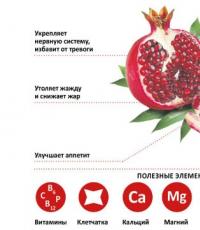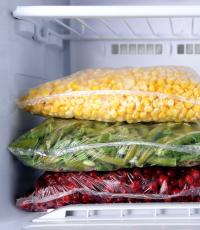Is it possible to give chickens tomato tops. Can chickens eat salty food?
By feeding chickens with all kinds of greens, vegetables, fruits and berries, you can enrich their diet with the most important nutrients, saving on expensive concentrated feeds. But feeding the bird everything that came to hand, and even without any restrictions, is not worth it. From such feeding, chickens can get sick and even die. Before offering a new delicacy to laying hens, you need to know for sure whether it will harm them and in what quantity it should be given.
Show all
Vegetables
Giving vegetables to chickens is necessary. They will enrich their diet with vitamins, minerals, sugars and fiber. There are vegetables that you can feed the bird with almost no restrictions. But there are those whose excess in the diet of laying hens can lead to undesirable consequences.
It is best to give not separately, but as part of wet mash (previously, vegetables should be washed and chopped: cut, rub or pass through a meat grinder). It is undesirable to subject them to heat treatment so as not to lose most of the vitamins.
A lot of vitamins are lost during the winter storage of vegetables, so the most healthy vegetables- fresh.
Potato
Boiled potatoes, especially in the form of mashed potatoes, are extremely healthy for both chickens and small chickens. In its consumption, the bird can not be limited. But on the tubers there should not be green areas containing a toxic substance - corned beef. The ingestion of this poison into the body can lead to severe poisoning of the bird. You can give chickens and raw potatoes. You should beware of sprouted and spoiled.
Potato peels should also be given with caution. It is in them that the largest amount of corned beef accumulates. In addition, this is a rather rough food that some chickens refuse to eat.
In no case should you feed potato tops to laying hens. It contains especially a lot of corned beef. Free-roaming chickens themselves bypass the potato bushes. But if, due to the inexperience of the owner, the potato tops get into the feeder for the laying hens as part of the mash, they may not figure it out and become seriously poisoned.

Carrot
Carrots are an excellent food for poultry, providing them with vitamin A. Up to 30 g of carrots per day can be fed per head.
Just do not forget that chickens do not eat large and hard pieces of this vegetable. Carrots are better for them finely chopped or grated. Laying hens eat carrot peelings wonderfully. You can feed them with carrot tops.

Beet
Beets should be used to feed laying hens with great care:
- It causes diarrhea.
- Beets stain the cloaca red, which provokes pecking and cannibalism.
It is better to give chickens not a dining room, but fodder or sugar beets. You can use the root crop together with the tops.
Cabbage
With pleasure, laying hens eat cabbage, including fodder.
A head of this vegetable can be hung in the winter in a chicken coop so that the chickens reach for it and gradually pluck it. And you can offer them finely chopped cabbage leaves mixed with flour.
Radish, swede, turnip, radish
All these cruciferous root crops can be added in small quantities to the mixers, after rubbing them on a grater. The tops of root crops should also be used.
The radish is mixed with caution and in the smallest doses, because due to its bitter taste, the bird may refuse to feed.
Onion
Onions are an indispensable source of vitamin C in the diet of laying hens. It contributes to the formation of the bird's immunity, protecting its body from diseases, has bactericidal and anthelmintic properties. It is necessary to give it to both adult chickens and chickens from the age of five days. For chickens onion passed through a meat grinder, and the green is finely chopped with a knife.
Do not add too much onion to the mix. Its pungent odor can scare away birds. Excess amount onions can cause irritation of the mucous membranes of the digestive tract.
Tomatoes, eggplant
When the fruits of these plants of the Solanaceae family are ripe, then in a small amount they can be safely used to feed laying hens. If you offer too many of these vegetables, the chickens will have digestive problems.
Chickens should not be fed green eggplants, and especially tomatoes. They, like green potatoes, contain a poisonous substance - corned beef. The tops of these plants are also unsuitable for feeding poultry.
Cucumbers, pumpkin, zucchini
Fresh cucumbers are an excellent top dressing for chickens. At first, it is better to offer them to laying hens cut, at least in half. Then the chickens will understand that juicy pulp is hidden under the hard peel, and even whole cucumbers will begin to peck.
Only the peel of overripe cucumbers is not always suitable for bird food.
Pumpkin is exceptionally useful for chickens. Like carrots, it is a source of vitamin A for them. Layers and zucchini will not hurt.
Fruit
Fruit is another great vitamin feed for poultry. Hens regularly receiving such top dressing lay eggs with a particularly bright yolk. But here, too, everything should be done in moderation.
You can give:
- 1. Apples, pears. At the end of summer and at the beginning of autumn, there is always a lot of carrion in the gardens. These fruits can be fed laying hens. But you should not give chickens apples and pears often and in large quantities. This will lead to digestive problems. A quarter of a fruit is enough for one head several times a month. You can give not only carrion, but also cake left over from fruit processing.
- 2. Tropical fruits. Chickens can eat the pulp of oranges and other citrus fruits, but they will refuse the peels, unless they play with them. Do not give citrus peel to chickens. There are chickens that enjoy eating bananas. But there are those who refuse such a fruit.
- 3. Watermelon, melon. Watermelon and melon can be offered to chickens as a treat. They are happy to eat the pulp of the fruit and pick up their seeds (very useful for laying hens). But overfeeding with such pulp is undesirable, it also causes indigestion. Chickens are reluctant to eat the peels of these fruits. Especially watermelon rinds, as they are too hard and thick for a bird. Some peck the flesh from them until only a thin peel remains, others refuse such a treat.
- it is strictly forbidden to feed birds with salty food (for example, compound feeds with added salt intended for feeding pigs);
- do not give birds grain covered with mold and fungi;
- it is not recommended to give chickens fresh grain of rye, as well as legumes (for example, peas);
- you should not constantly feed chickens with boiled potatoes, although sometimes you can give them, they willingly eat it.
Chickens should not be fed sweet foods (cakes, pastries, jams). You should not feed chickens with meat products, such as sausages or sausages. You should not give milk to chickens, give them cottage cheese. Almost any animal products, except for worms, should not be given to chickens. Also, do not give chickens too salty foods. The stomach of chickens does not tolerate pepper and fatty foods, so no vegetable oil should not be in their feed!
What not to feed chickens
- Any bread. Although, white stale bread is not very large quantities can. Black causes digestive problems, turning into diarrhea or polyuria.
- Sausages in any form, they have too much fat, salt, spices, preservatives, dyes, flavors and other additives. These foods can cause a heart attack or stroke.
- Milk(as well as bread soaked in milk or porridge in milk), it leads to dysbacteriosis, since they normally have few lactic acid bacteria and there is no enzyme that processes lactose.
- Cheese, since, as a rule, it contains a lot of fat and salt, some are preservatives, and melted ones also contain melting salts. Any bird is strictly contraindicated.
- Soups, any, except for vegetarian vegetables without salt and spices. And fat, and salt, and seasonings are harmful to birds.
- Coffee, cocoa, chocolate- these products are generally contraindicated in most animals due to caffeine and theobromine.
- Alcohol in any form. As an exception, medicinal alcohol tinctures, and even then, very strongly diluted (2-3 drops per 100 ml of water) and not more than a week. Otherwise, the rapid degradation of the liver is guaranteed, since it is completely incapable of processing alcohol.
- Jam, compotes, marmalades due to too high sugar content. The pancreas of birds cannot produce such an amount of insulin, and the remains of unprocessed sugar are culture medium for pathogenic fungi.
- Any oil again, due to the inability of the liver to process fat in such an amount, because a drop sunflower oil in terms of fat content, it is equal to a dozen seeds.
In general, chickens are quite unpretentious in food, they can only eat pasture while on free range. But in order for chickens to develop properly and lay eggs, it is worth knowing those foods that are not suitable for them for development and egg production.
For example, potato tops, green boiled potatoes are poisonous because they contain solanine, which can lead to poisoning of chickens.
To prevent eggs from laying hens from smelling like fish, you should not give them fish oil.
It is forbidden to feed chickens to other chickens, which is fraught with encephalopathy.
Hard foods, such as citrus peels, watermelon peels, potato peels, are all poorly digested in the stomach of chickens and lead to digestive problems.
Overfeeding chickens with vegetables is also not worth it, diarrhea may appear, because vegetables clog the stomach, not having time to digest.
It is also considered stress for chickens, a sharp transition to a new food, it is better to do this gradually, introducing a new food along with the usual one.
How many chickens I keep, but I have never read such nonsense. Sun that chickens eat it turns out forbidden to give. Free range chickens eat absolutely everything. And they will not eat anything that is not to their taste or is poisonous. Of course, if you stuff a chicken with the same product, it will bend; (as in other matters, any animal), everyone needs a varied diet. So here are just some of the things that I called nonsense above. Milk (especially lactic acid products and especially cottage cheese) is the best food, especially for young animals. Bones are a valuable food for everyone (at all times they gave bone meal). There are never any problems with bread, only they are fed and fed always. Always collected crackers. I won't say anything about cereals. In general, if you are afraid of losing chickens, give them free range. Let them eat: pebbles, sticks, soil, roots, insects, grass and throw them whatever you want. They choose what they like. And keep it locked up, let's Knead: and cereals and greens and bones and milk and add the additive ryabushka or sunquot ;, then they will not depod. So, what depends on the conditions of detention and you can give everything, especially since they themselves know very well what to choose. Feed what you eat (natural). If the product is harmful to you, then the bird will not benefit.
Chickens are unpretentious poultry, they do not require care special work. In terms of nutrition, chickens prefer grain feed (wheat, millet, corn). Chickens are very fond of walking in freedom, while they eat greens, and also eat various bugs and worms with pleasure.
So that the birds do not get sick and feel good:
In order for chickens to grow and develop normally, as well as lay eggs, they need to be properly fed. First of all, you need to understand what they should not be given as food:
1) Although chickens are omnivores and they will eat everything they are given (they can even eat each other if they see blood), but still you should not give them chicken bones and meat. This can lead to the disease of encephalopathy.
2) Do not give quicklime or recently slaked lime.
3) Apples can cause indigestion and diarrhea.
4) I read that chickens can have diarrhea from beets and white chickens from this stain the feathers at the anus. This may make other chickens want to peck at them.
Forbidden food for chickens.
Chickens should not be fed potatoes (especially if they are green), tops, roots, shoots, fruits, etc. of nightshade, because all this contains solanine, a poisonous glycoalkaloid. But many chicken keepers feed this as well. In general, the diet of chickens greatly affects how they rush.
Chickens should not be given a variety of Exotic fruits- oranges, pomegranate, bananas. You can not give sweets and sweets. Can't give semolina. You can not give bitter grass and carefully monitor that they themselves do not eat poisonous grass. In no case should you give a potato that has turned green from the light!
The quality, quantity of eggs and the taste of meat in chickens depend on the breed, conditions of detention and diet. The right balance of proteins, fats and carbohydrates, minerals and vitamins increases life, reduces disease, and helps to lay strong and large eggs.
The compound feed contains fish or meat and bone meal, as well as animal fat (for meat breeds). When food is prepared at home from their own products, it is not difficult to achieve harmony if you know what can be given to chickens and in what proportions.
In the chicken diet, 70% is occupied by grain feed, the rest is protein feed (vegetable and animal) and green. Food needs to be crushed so that it is convenient to peck.
- Animal food: boiled minced meat, fish, bone meal.
- Vegetable - mushrooms, vegetables, fruits. Depending on the season, the proportions of nutrition change.
- In summer, there is more vegetable and green food, in winter - animal and grain. If the birds are not on free grazing, then they must add salt and sand, which are necessary for digestion.
- Sand helps to grind food inside the intestines, digest it.
Important! When a chicken walks around the yard, it pecks at the soil. So the bird gets enough excipients into the body, so in the summer it is not necessary to add sand to the diet.
- So that the bird has enough minerals, they grind seashells, add chalk, limestone, eggshells. The shells are washed and crushed, otherwise the chickens, in search of treats, begin to peck their own eggs.
- Millet, millet, barley, rye are the grain basis of chicken feed. Millet boiled in water can be given to chickens. Corn is a fatty grain, so it is added about 5-6% of the grain base.
Foods Not to Feed Chickens
In the private sector, birds are sometimes fed table scraps or leftover feed from other animals, but some foods are harmful to the health of animals or lead to death.
So, for example, to the question of whether it is possible to give salt to chickens, the answer will be negative. They contain substances that the chicken is not able to digest due to the lack of the necessary enzymes in the body.
Product List:
- Spices: salt, pepper, curry harm the stomach and intestines, irritate the mucous membranes. Therefore, the products that are left after lunch or dinner shorten the life of the bird.
- fresh bread creates a lump in the goiter and stomach, which is difficult to digest and leads to volvulus. White bread is given to birds in the form of dried, crushed crackers. Black bread is more dangerous, it leads to diarrhea, polyuria (increased urine output), it has high acidity, which worsens egg production.
- Whole milk is not digested due to the lack of lactobacilli in the intestines. Therefore, products soaked in milk do not bring benefits. Bread soaked in milk is a double blow to the bird's body.
- Butter and cheese harm the liver with high fat content, salt.
- Chocolate, cocoa are deadly poisons for animals due to the theobromine they contain. The metabolism of chickens is arranged in such a way that theobromine is very slowly processed by the body, this leads to poisoning. Even a small piece of chocolate or cocoa powder can kill.

- Sweet: jam, marmalade, cookies, cakes, muffins contain a lot of sugar. This leads to fermentation inside the body, and then to poisoning, to thickening of the blood.
- Sausage, sausages, sausages harm the liver with fat content, and also irritate the mucous membrane with spices.
- Raw green potatoes contain a plant poison - solanine, which poisons the body and leads to diarrhea. Especially a lot of this substance in potato peelings.
- Solanaceae: tomatoes (including leafy greens), eggplant, tobacco, vegetable peppers, nightshade. They, especially unripe ones, contain solanine.
- Grain with mold leads to severe poisoning.
Attention! Alcohol is deadly. If the supplement or medicine in drops contains alcohol, they must be diluted with plenty of water as written in the instructions.
In addition to prohibited foods, there are those that are harmful only in large quantities, and in small quantities are useful. For example, an apple causes diarrhea, which leads to dehydration, so constantly feeding apples to chickens is dangerous.
Once a week, giving one fruit to 4 chickens is useful because an apple contains iron. By analogy with an apple, all juicy fruits act: zucchini, cucumbers, bananas, pears.

Foods that can be fed to chickens
When choosing additives to the diet, many questions arise: is it possible to give chickens mushrooms, is it possible to give salt to chickens, and what if the diet is based on millet or peas and beet tops?
Let's look at the foods that you can supplement. Product List:
- Mushrooms contain a lot of protein and are liked by chickens, they raise a lot of meat breeds well. Any boiled or dried mushrooms that a person can eat are suitable for food. Raw birds may refuse treats.
- Banana and banana peel. The fruit itself can be given by analogy with an apple, that is, rarely, little by little. Banana peel should be well washed hot water with soap to wash away the chemicals that process these fruits. The crushed peel is added to the feed.

- The fish is boiled to such an extent that small bones are boiled: they can damage the esophagus, stomach or intestines, leading to bleeding and death. The ridge is ground into flour. By itself, the fish is very useful, but worms can appear from raw fish.
- Citrus peels (tangerine and orange peels) can be useful when dried, crushed. The fruits themselves are too acidic for the bird, they are not suitable as food.
- Boiled potatoes are often used for fattening broilers. It contains a dangerous poison, but if it was not initially green, then you can add it. Potatoes are a source of vitamin B and starch, which increases the weight of the chicken. Can chickens eat potatoes? Yes, but not earlier than on the 20th day of life. There is a common myth that solanine disappears during cooking, this is not true. The poison solanine does not disappear from plants during heat treatment, so the danger of poisoning remains.

- Cottage cheese, unlike whole raw milk, is normally accepted by the body of a chicken in small quantities. It is often fed to chickens because it is a source of calcium.
- Table salt as a mineral supplement causes a lot of controversy: can chickens have salt? Sodium chloride is necessary for the vital processes of the body, maintains the water-salt balance, but it is a poison. If the laying hen walks free-range, absorbs worms, digs in the ground, then she does not need additional salt. If the chicken lives in a chicken coop, then you need to add salt. It is dissolved in water and added to the mash at the rate of 3-5 g per 1 kg of feed.
- Legumes (peas, beans, beans) are given boiled so that they are well absorbed. Before cooking, they are soaked in cold water for 5-6 hours, so that oligosaccharides come out, which are not digested by the chicken body.
- Carrots, pumpkin, zucchini, turnips are sources of vitamins in winter when there is no fresh grass. So that the chickens can peck, you can chop the vegetables a little with a blender or rub them on a coarse grater.
- Boiled and raw beets, tops are a strong laxative, but the question Is it possible to feed chickens with red beets causes lively debate. Some poultry farmers claim that it is possible and necessary, others are categorically against this vegetable. If you add beets a little bit, then this will not lead to dangerous consequences, if this is the basis of nutrition, dehydration is possible.
- Yellow fodder beets do not cause diarrhea and may be part of the bird's diet.

green fodder
An important part of the diet of chickens and chickens is fresh green grass. Birds get vitamins, minerals, fiber from it. The supply of these substances obtained during the summer helps animals to easily and without illness overwinter. But not every herb is beneficial: some types of plants are a threat to the bird's body.
These plants include:
- Black nightshade and all shoots and flowers of nightshade (eggplant, tomato, potato, tobacco);
- Henbane;
- Juniper;
- Belladonna;
- Elder;
- burdock;
- Buttercup;
- Ambrosia.
You can not give the tops of legumes (peas, soybeans, beans), because they cause constipation and flatulence. The controversial question is whether it is possible to give dandelion and celandine to chickens. These plants do not cause obvious changes in the body, if they do not form the basis of the daily diet.
Green fodder is introduced to chickens from the first day of life. It could be green onion or scalded nettle. Young nettle contains a lot of iron, manganese, zinc, copper and vitamin K, it is useful for all chickens without exception.
Clover, alfalfa, parsley, radish tops are also good for birds; young green needles and tree leaves are mixed into the feed.
Very fond of chickens ornamental plant called cochia. This fluffy bush is medicinal, medicines are made from it for people, but it helps to strengthen the immune system and fight various diseases and chickens.
Proper feeding is an important component in the care of chickens for any poultry farmer. High-quality, nutritious and large eggs can be obtained by providing the bird with a healthy and balanced diet. From this article you can find out what to feed chickens, what types of feed are suitable for them, and what should be excluded, whether it is possible to give bread to a bird.
What to feed chickens
Various kitchen and garden waste are used as feed for chickens. Bird can feed unusable potatoes, for example, too small, greenish, sprouted, as well as peeled. One individual can consume 50-100 g of the product.
Stale and dried bread, soaked, can also be given to chickens. The offal of the fish and its heads, meat leftovers, ground fresh bones are used as food. Among the waste of the garden, the tops of beets or carrots, cabbage leaves, the remains of fruits and berries are suitable for feeding laying hens. From these ingredients, poultry mashes are made, and you don’t have to think much about how to feed the chickens.
Feeding protein foods includes the following: Ingredients:

Meals and cakes from agricultural crops are included in mash and mixed feed for chickens. Other sources of protein include earthworms, small amphibians and cockchafers.
Dry food can also be used to feed laying hens. compound feed. It is advisable to choose special types designed for chickens and including additives for high egg production. If the bird is raised for meat, then the feed should not contain various premixes that will reduce the weight gain of chickens.
Ready-made types of compound feed have nutritional value and composition similar to natural feed. Among the ingredients, 60-70% of the volume is occupied by: barley, oats, bran, millet. A share of 20-30% goes to legumes and corn. The remaining 10-15% includes berries, minerals, premixes, vegetables, vitamins, bone and herb meal, milk-based powders.
What not to feed chickens
Laying hens practically omnivores and can eat food not the most best quality. Some breeders, taking advantage of this, try to feed moldy, sour, rotten leftovers to the bird. This gives rise to various intestinal infections, diseases, eating disorders. Often, with such feeding, fungal diseases of the respiratory system appear.
Before serving, it is necessary to grind all root vegetables. Beets and carrots are fed to the bird in a grated, raw form. Potatoes and corn must be boiled to get rid of excess starch. Green potatoes can often lead to chicken poisoning. Vegetables, grains and greens must be cleaned of dirt and non-food residues: ropes, films, foils.
You can not feed laying hens with muffins containing sugar and harmful impurities. In a small amount, you can give bread from cereals. All food should not be oversalted. When feeding with fish oil, you need to choose a product with a high quality to avoid bad smell from eggs.
An excess of whole milk can provoke dysbacteriosis in laying hens. It is strictly forbidden to feed the bird the following products:

What grass can be given to laying hens
In summer, the diet of birds for 50% can consist of fresh, juicy greens. This approach makes it possible to provide chickens essential vitamins, increase their productivity and save on the purchase of feed. Green feed improves the taste and quality of eggs, makes the yolk bright. Grass is easier for laying hens to digest than artificial feed.
Alfalfa contains a lot of vitamin A, which has a beneficial effect on vision. Vitamin E, which is rich in sprouted wheat grains, promotes health and productivity. Clover supplies chickens with protein, and sorrel saturates with vitamin C.
Herbs for adult birds
The average composition of greens in the feed mixture can reach 15-30%, and in summer - 50%. Adults love the following kinds herbs:

Chickens are good at eating hard vegetables and legumes. Cabbage heads and leaves are a good source of vitamins for poultry. Dill, beet tops, onion feathers, parsley can be included in the feed. Amaranth contains a lot of useful protein.
Grass can be pecked by birds on one's own or served in feed mix. Grass bundles are best hung, and not laid out on the floor, so that the chickens do not trample them. Laying hens themselves choose the grass suitable for themselves, so you can safely feed them weeds and herbal preparations, excluding poisonous plants. Sprouted grains, pine needle flour and dried herbs are a good substitute for herbs in winter.
Grass unsuitable for laying hens
Chickens themselves can avoid poisonous vegetation by eating the grass they need. In order to minimize the risk of poisoning, it is necessary to examine the walking area for the presence of poisonous plants. Harmful grass is better to dig up with the roots so that it does not germinate again.
Poisonous for chickens are the following herbs:

Plants from this list can cause diseases of the bird or even lead to their death. It is important to follow the walking, be able to recognize poisonous plants, know the types of herbs that birds love. To completely eliminate the consumption of harmful herbs, chickens can be kept in aviaries and given out only proven greens.
Can chickens be given bread?
Chickens need a balanced diet rich in nutrients. elements:
- carbohydrates;
- minerals;
- fats;
- vitamins;
- proteins.
The question often arises, is it possible to feed laying hens with bread? There are different opinions on this matter, but what matters is the form in which pastries are served. To obtain a complete feed, bread can be mixed with bran, meat, potatoes, cottage cheese, herbs. Such food will increase egg production and improve the health of the bird. Give fresh bread to chickens Not recommended.
Fresh bread is a processed product that contains a significant amount of salt. In this form, it can adversely affect the health of the bird, lower its immunity and egg production.
Bread swells in the stomach of chickens, forms a dense lump in the crop, which can lead to suffocation and death of the bird. Black breads are the most dangerous, as they include yeast and salt, and are highly acidic. These components are not absorbed in the body and start the fermentation process, which reduces the egg production of laying hens.
Being warm, the bread quickly begins to deteriorate, become moldy, especially when wet. Spoiled pastries are also dangerous for birds. It can provoke poisoning, problems with metabolism and digestion. Bread affected by mold can be deprived negative exposure by holding it for a couple or in the oven. Sweet pastries and pastries with fillers are also unsuitable for feeding poultry. Sweet food contributes to blood clotting, indigestion, stool disorders and poisoning.
White bread contains a large amount of carbohydrates, so it can be given to laying hens in the form of crackers. Such top dressing should be done in small quantities and infrequently. Bread can be a good source of energy for chickens in autumn and winter period. Do not give bread to birds kept in small aviaries and cages. Lack of movement in combination with such food can lead to blockage of blood vessels.





